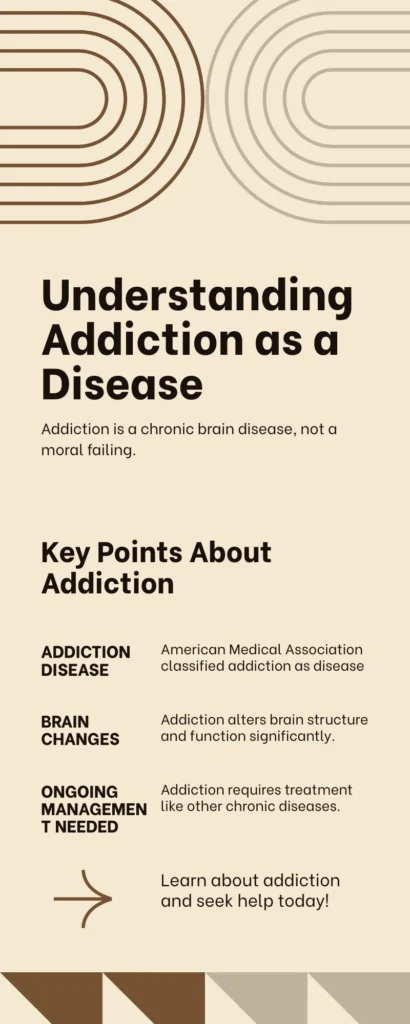Addiction risk is influenced by both genetics and environment, making the relationship between family history and substance use disorders more complex than simple inheritance. Research shows that genetics account for about 40–60% of addiction vulnerability, affecting brain functions related to decision-making, impulse control, and reward systems, but environmental factors—such as childhood trauma, learned behaviors, and family communication—often determine whether these risks manifest. Growing up in households affected by addiction can increase susceptibility through adverse childhood experiences, modeled substance use, and dysfunctional family dynamics, while supportive, communicative families can provide protective factors. Treatment approaches like medical detox, behavioral therapy, and family counseling address both biological and psychological aspects of addiction. See Purpose Treatment Center in Bloomfield, IN, offers inpatient and detox programs to help individuals and families break the cycle, emphasizing that while genetic predisposition raises risk, it does not dictate one’s future.
Does Addiction Run in Families? Understanding the Risk Factors
Watching a loved one struggle with addiction raises difficult questions. Parents wonder if they passed something on to their children. Siblings worry about their own vulnerability. Adult children of people with addiction often ask themselves: Does addiction run in families? Am I destined for the same fate?
While genetics do play a role in addiction risk, the relationship between family history and substance use disorders is more complex than simple inheritance. Understanding these factors can help families make informed decisions about prevention, treatment, and recovery. At See Purpose Treatment Center in Bloomfield, IN, we work with individuals and families affected by addiction through our comprehensive inpatient and detox treatment programs designed to break these cycles.
Understanding Addiction as a Disease
Addiction is recognized by medical professionals as a chronic brain disease, not a moral failing or lack of willpower. The American Medical Association first classified alcoholism as a disease in 1956, and this understanding has expanded to include all substance use disorders.1
This disease model is supported by decades of scientific research showing that addiction causes measurable changes in brain structure and function. These changes affect areas responsible for:
- Decision-making
- Impulse control
- Learning
- Memory
Like other chronic diseases such as diabetes or heart disease, addiction requires ongoing management and treatment.2
The brain changes associated with addiction help explain why people continue using substances despite negative consequences. They also shed light on why some individuals seem more vulnerable to developing addiction than others, even when exposed to similar circumstances.

Does Addiction Run in Families? Genetic Factors in Addiction Risk
Research consistently shows that genetics account for approximately 40-60% of a person’s risk for developing addiction.3 This means that having a family history of substance use disorders significantly increases your likelihood of experiencing similar struggles.
Specific genes associated with addiction risk are still being identified, but researchers have found several important connections. Some genes affect how quickly the body metabolizes alcohol or drugs, while others influence neurotransmitter systems in the brain that regulate pleasure and reward.
However, having genetic risk factors doesn’t guarantee that someone will develop addiction. Environmental factors, personal choices, and life circumstances all influence whether genetic predisposition translates into actual substance use problems.
Environmental Influences Within Families
While genetics provide the biological foundation for addiction risk, environmental factors often determine whether that risk becomes reality. Family environments play a crucial role in shaping attitudes toward substance use and teaching coping mechanisms for life’s challenges.
Childhood Experiences and Trauma
Children who grow up in households affected by addiction face multiple risk factors. They may experience neglect, abuse, or inconsistent caregiving that creates lasting psychological effects. Adverse childhood experiences (ACEs) are strongly linked to increased addiction risk later in life.4
Trauma doesn’t just create emotional wounds; it actually changes brain development in ways that increase vulnerability to substance use disorders. Children in chaotic or unpredictable environments often develop heightened stress responses that persist into adulthood.
Learned Behaviors and Modeling
Children learn by watching the adults around them. When parents or other family members use substances to cope with stress, celebrate achievements, or manage emotions, children internalize these patterns as normal responses to life’s ups and downs. Research shows that children as young as 2 and 3 years old can show signs of emotional and behavioral disturbances if they have a parent who uses.5
This modeling extends beyond substance use itself to include attitudes about seeking help, managing problems, and expressing emotions. Families that avoid discussing mental health or dismiss the need for professional support may inadvertently teach children to handle difficulties through self-medication.
Family Dynamics and Communication
Dysfunctional communication patterns within families can contribute to addiction risk. Families that struggle with conflict resolution, emotional expression, or setting healthy boundaries may create environments where substance use becomes an escape mechanism.
Conversely, families with strong communication skills, clear expectations, and supportive relationships provide protective factors that can reduce addiction risk even when genetic vulnerability exists.
Breaking the Cycle: Prevention and Treatment
Professional treatment provides the most effective path to recovery for individuals struggling with substance use disorders. Evidence-based approaches address both the biological and psychological aspects of addiction through medical detox, behavioral therapy, family counseling, and ongoing support services.
Understanding that addiction has both genetic and environmental components empowers families to take action. While you cannot change your genetic makeup, you can influence environmental factors and seek appropriate treatment when needed.
Finding Hope and Healing
While having a family history of addiction increases risk, it doesn’t determine destiny. Many people with strong genetic predispositions never develop substance use disorders, while others without family history do struggle with addiction.
If you or a loved one is struggling with addiction, help is available. See Purpose Treatment Center in Bloomfield, IN, offers evidence-based inpatient and detox treatment programs designed to address the unique needs of each individual and their family.
Don’t let family history define your future. Contact See Purpose Treatment Center today to learn more about our comprehensive treatment options and take the first step toward breaking the cycle of addiction in your family.
FAQs
Is addiction hereditary?
Addiction itself is not directly inherited, but genetic predispositions can increase the likelihood of developing substance use disorders. Studies suggest that genetics account for about 40–60% of an individual’s risk for addiction. If a close family member has struggled with addiction, there may be a higher genetic vulnerability combined with environmental factors that influence behavior.
What role do environmental factors play in family-related addiction?
Environmental factors are just as crucial as genetics in contributing to addiction. A household where substance use is normalized or where children are exposed to trauma, neglect, or stress may contribute to a higher risk of developing addiction. However, the right support systems and healthy environments can mitigate these risks.
Can addiction skip generations?
Yes, addiction can skip generations. A person may not develop addiction themselves, but their children could still be at risk due to the genetic predisposition being passed down. It’s important to focus on preventative measures, such as fostering open communication about substance abuse and working toward a healthy, stable family environment.
How can I prevent addiction in my family?
While you can’t change your family history, you can reduce risks by promoting healthy coping mechanisms and creating a supportive environment. Educate children about the dangers of substance abuse, encourage participation in extracurricular activities, and model healthy behaviors. Seeking professional support can also be instrumental in addressing and breaking cycles of addiction.
If addiction runs in my family, am I destined to struggle with it?
No, a family history of addiction does not guarantee that you will develop the same struggles. It is only one risk factor among many. Being aware of your family history allows you to make more informed decisions and practice proactive measures to avoid substance misuse.
Are there programs that address family history and addiction?
Yes, many addiction treatment centers, such as See Purpose Treatment Center, offer programs specifically designed to address the unique challenges faced by those with a family history of addiction. These programs combine evidence-based therapies with family counseling to help individuals and their loved ones overcome addiction and heal together.
What should I do if I suspect a family member is struggling with addiction?
If you suspect a loved one is battling addiction, approach the situation with empathy and understanding. Avoid judgment or blame and encourage them to seek help. You can also reach out to professionals, such as those at See Purpose Treatment Center, who offer resources and treatment options to guide families through the recovery process.
References
- Bettinardi-Angres, K., & Angres, D. H. (2010). Understanding the Disease of Addiction. Journal of Nursing Regulation, 1(2), 31–37. https://doi.org/10.1016/s2155-8256(15)30348-3
- National Institute on Drug Abuse. (2020). Drug Misuse and Addiction. National Institute on Drug Abuse; National Institutes of Health. https://nida.nih.gov/publications/drugs-brains-behavior-science-addiction/drug-misuse-addiction
- How genetic sex differences impact risk of addiction | Ohio State College of Medicine. (n.d.). Medicine.osu.edu. https://medicine.osu.edu/about-us/annual-report/how-genetic-sex-differences-impact-risk-of-addiction
- He, J., Yan, X., Wang, R., Zhao, J., Liu, J., Zhou, C., & Zeng, Y. (2022). Does Childhood Adversity Lead to Drug Addiction in Adulthood? A Study of Serial Mediators Based on Resilience and Depression. Frontiers in Psychiatry, 13(13), 1–9. https://doi.org/10.3389/fpsyt.2022.871459
- M. Solis, J., M. Shadur, J., R. Burns, A., & M. Hussong, A. (2012). Understanding the Diverse Needs of Children Whose Parents Abuse Substances. Current Drug Abuse Reviewse, 5(2), 135–147. https://doi.org/10.2174/1874473711205020135




